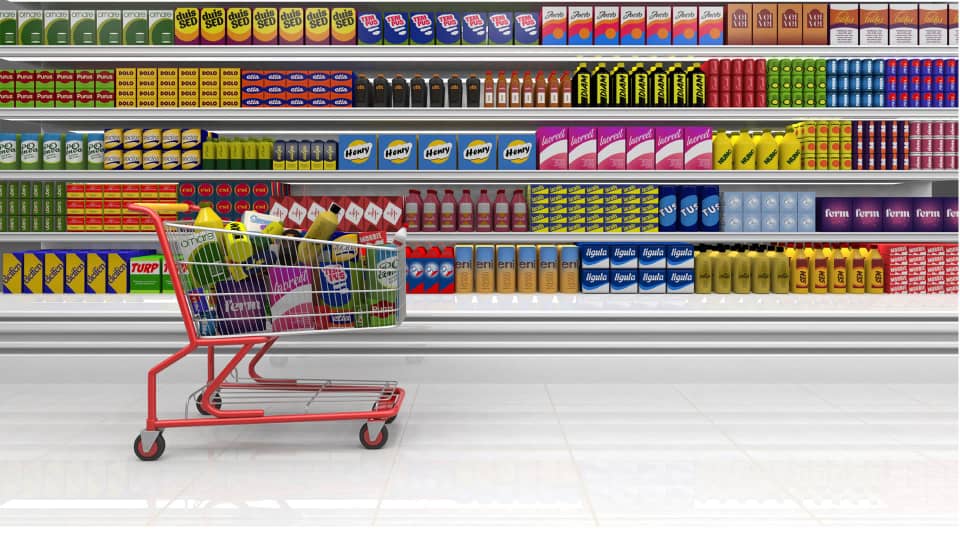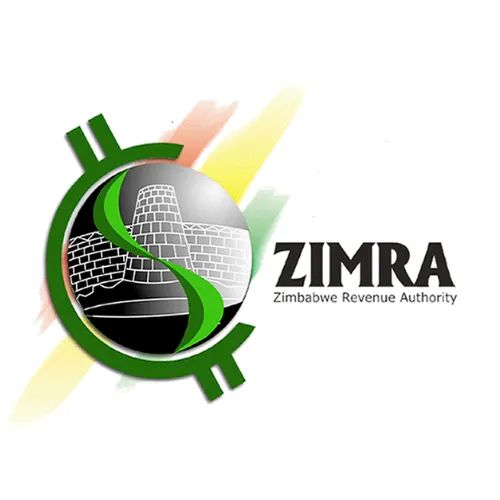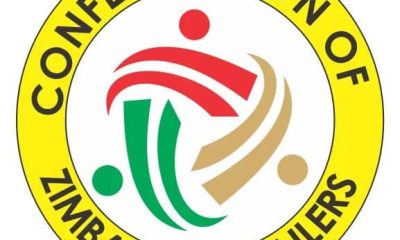Business
CRZ Welcomes Cabinet’s Move to Streamline Retail and Wholesale Licensing

The Confederation of Zimbabwe Retailers (CZR) has applauded Cabinet’s approval of sweeping reforms to licences, permits, levies and fees in the retail and wholesale sector, describing the move as a major step towards improving the ease and cost of doing business in Zimbabwe.
The reforms, approved under the Government’s 29 July 2025 business reform framework covering twelve key economic sectors, aim to remove structural bottlenecks that have long weighed down formal businesses.
Cabinet approved the consolidation of fragmented licensing requirements into a single licence, the streamlining of duplicative and overlapping permits, and the removal or reduction of unnecessary levies and fees across major sub-sectors such as supermarkets, butcheries, clothing and furniture shops.
Among the key adjustments, the Liquor Licence application fee has been slashed to USD20 across all sectors — down from USD1,080 for wholesale liquor traders — while the Medicines Control Authority of Zimbabwe (MCAZ) permit fee of USD200 for veterinary products and the Local Authority bakery licence fee of USD703 have both been scrapped.
Cabinet also agreed to cap licence fees for all local authorities to promote uniformity nationwide.
Cross-cutting reviews were also made on several key regulatory fees. The Procurement Regulatory Authority of Zimbabwe (PRAZ) licence fee for groceries and provisions has been reduced from USD120 to USD20, while the National Social Security Authority (NSSA) elevator registration fee has been cut from USD200 to USD20.
Other reductions include a 50% cut to the Health Report licence fee, and the lowering of bank charges and transfer fees to promote financial inclusion.
CZR President Dr Denford Mutashu commended Government for its “progressive and business-friendly decision,” saying it reflected strong political will to strengthen the formal economy.
“For years, the multiplicity of fragmented licences and overlapping permits imposed by different regulatory bodies has increased operational costs and constrained growth. This reform marks a decisive step toward a more competitive, business-friendly environment,” Dr Mutashu said.
He urged all local authorities and regulatory agencies to swiftly align their licensing frameworks with the Cabinet-approved reforms “to ensure immediate relief for operators on the ground.”
CZR also expressed gratitude to President Emmerson Mnangagwa and Cabinet for their commitment to creating a conducive environment for business growth, consistent with the national vision of “leaving no one and no place behind.”
The reviewed licences, permits and fees will undergo further refinements before being officially gazetted.
Business
Lower Gweru Miner Rises From Artisanal Beginnings to Multimillion-Dollar Gold Venture

A miner from Lower Gweru has risen from humble beginnings to become the owner of a multimillion-dollar gold operation—progress he credits to the empowerment initiatives rolled out under the Second Republic.
Latest figures show that small-scale miners now account for roughly 75 percent of Zimbabwe’s yearly gold deliveries, underscoring the sector’s growing influence.
Tawanda Muchenurwa, born 52 years ago in rural Chivi, Masvingo, discovered his love for gold prospecting as a young student, spending much of his time searching for the precious mineral along the Runde River.
He later joined Zim Alloys, where he sharpened his understanding of mining techniques. Eventually, he left formal employment to pursue artisanal mining in the Shurugwi mountains, a bold step that would lay the foundation for his future success.
Through persistence and careful saving, Muchenurwa managed to register a mining claim in Lower Gweru—land that he would transform into a thriving gold operation.
Today, his venture, Birthday Mine, employs more than 100 people and contributes over 1.5kg of gold to national reserves each month.
“It has been a long road. When I bought this place in 2016, it was nothing but a mountain. Using savings from my artisanal mining work, I slowly built the operation. The real turning point came after 2018, when the Second Republic opened more doors for local miners. I accessed a loan and began structured mining,” he said.
“With the President’s Vision 2030 in mind, we are pushing even further. We now have modern underground mining machinery, and by next year I’m targeting at least 10kg of gold every month.”
The mine has also brought relief to nearby communities, creating jobs and improving household incomes.
“For many of us, securing employment here has changed our lives. I can now support my husband and help my siblings with school fees,” said employee Mrs Brilliant Shumba.
Another worker, Mr Ikabot Chadza, echoed the sentiment: “This job has equipped me with new skills and eased the burden of supporting my family. It has truly empowered me.”
Muchenurwa’s rise from artisanal miner to major gold producer highlights the power of determination and hard work. And as Zimbabwe exceeds its 40-tonne annual gold target, miners like him—who make up about 75 percent of bullion deliveries—remain central to the sector’s continued growth.
Business
Alfred H Knight Shows Interest in Zimbabwe’s Metals and Minerals Sector

Global inspection and technical consultancy firm Alfred H Knight has signalled its intention to expand into Zimbabwe, a move expected to boost investment in the country’s mining industry.
The company, known worldwide for its work in inspection, analysis and advisory services for the metals and minerals trade, recently sent a delegation to Zimbabwe to explore business opportunities. During their visit, company representatives commended the country’s improving investment environment and its openness to international investors.
Regional Business Development Manager Jonas Kamonere said Zimbabwe’s stable investment climate under the current administration makes the country an appealing location.
“We appreciate the investment environment that has been established by the new leadership,” he said.
Kamonere added that Zimbabwe’s rich mineral endowment—including precious metals, gemstones, base metals and industrial minerals—positions it as a significant market for the company.
From the Asian division, Business Development Manager Simon Sun highlighted that Zimbabwe’s mineral deposits offer strong revenue-generating potential. He noted that ongoing government efforts to encourage foreign investment in mining are likely to yield positive economic results.
“Zimbabwe is a strategic market when you look at the mineral wealth beneath its soil,” Sun said.
The company’s interest reflects confidence in government policies and its commitment to building a supportive business environment. Sun also emphasised that the favourable operating conditions make Zimbabwe a competitive choice for international investors.
Alfred H Knight provides a range of services essential to the metals and minerals supply chain, including sampling, weighing, laboratory analysis and quality control. The firm also offers technical consulting on mineral processing, plant design and operational efficiency, promoting responsible and sustainable mineral production.
With more than 140 years of experience and operations in at least eight African countries—such as Angola, Botswana, the DRC, Mozambique, Namibia and South Africa—the firm has a strong international presence across more than 60 countries.
The company’s entry into Zimbabwe is expected to stimulate economic activity by creating jobs, supporting local industries and encouraging further foreign investment. The government will also benefit through increased tax revenue and royalties.
The interest shown by Alfred H Knight further demonstrates that initiatives under the Second Republic—such as tax incentives, regulatory reforms and improvements to transport and communications infrastructure—are helping to attract global players to Zimbabwe’s mining sector.
Business
ZIMRA REMINDS TAXPAYERS TO SUBMIT FOURTH QUARTER PROVISIONAL RETURNS

Harare, Zimbabwe 11 December 2025: The Zimbabwe Revenue Authority (ZIMRA) has urged all taxpayers earning income from business or investments to submit their Fourth Quarter Provisional Tax Returns and settle payments for the 2025 tax year on time.
All taxpayers deriving income from business or investments, including self-employed professionals such as architects, engineers, legal and health practitioners, and real estate agents.
Submission of Fourth Quarter Provisional Tax Returns and payment of the corresponding tax. Taxpayers are also advised to reconcile any shortfalls from previous quarters or settle outstanding arrears.
Returns are due by 15 December 2025, while payments must be made on or before 20 December 2025.
At the nearest ZIMRA offices or through the online Taxpayer Revenue Management System (TaRMS).
ZIMRA said the reminder aims to encourage voluntary compliance and ensure all taxpayers meet their obligations under the Self-Assessment System, which now includes certain self-employed professionals previously paying presumptive tax.
Taxpayers should calculate provisional tax by estimating annual tax liability, apportioning income and expenses, converting excess USD income to ZWL, and applying the 35% rate for the fourth quarter.
ZIMRA also thanked taxpayers who have already submitted returns and payments, encouraging continued compliance in future years. Taxpayers facing challenges are urged to consult the nearest ZIMRA office for assistance.
“My Taxes, My Duties: Building My Zimbabwe,” the authority said, wishing all residents happy holidays.
-

 Current Affairs1 month ago
Current Affairs1 month agoOperation restore order
-

 Crime and Courts3 months ago
Crime and Courts3 months agoMasasi High School Abuse Scandal Sparks Public Outcry
-

 Crime and Courts3 months ago
Crime and Courts3 months agoKuwadzana Man Jailed for Reckless Driving and Driving Without a Licence
-

 Current Affairs5 months ago
Current Affairs5 months agoBreaking: ZIMSEC June 2025 Exam Results Now Available Online
-

 Current Affairs4 months ago
Current Affairs4 months agoMunhumutapa Day: Zimbabwe’s Newest Public Holiday Set for Annual Observance
-

 Current Affairs3 months ago
Current Affairs3 months agoBREAKING NEWS: ZANU PF Director General Ezekiel Zabanyana Fired
-

 Current Affairs4 months ago
Current Affairs4 months agoNo Racism in Our Cricket: Government
-

 Current Affairs4 months ago
Current Affairs4 months agoGovernment Bans Tinted Car Windows in Nationwide Crime Crackdown





